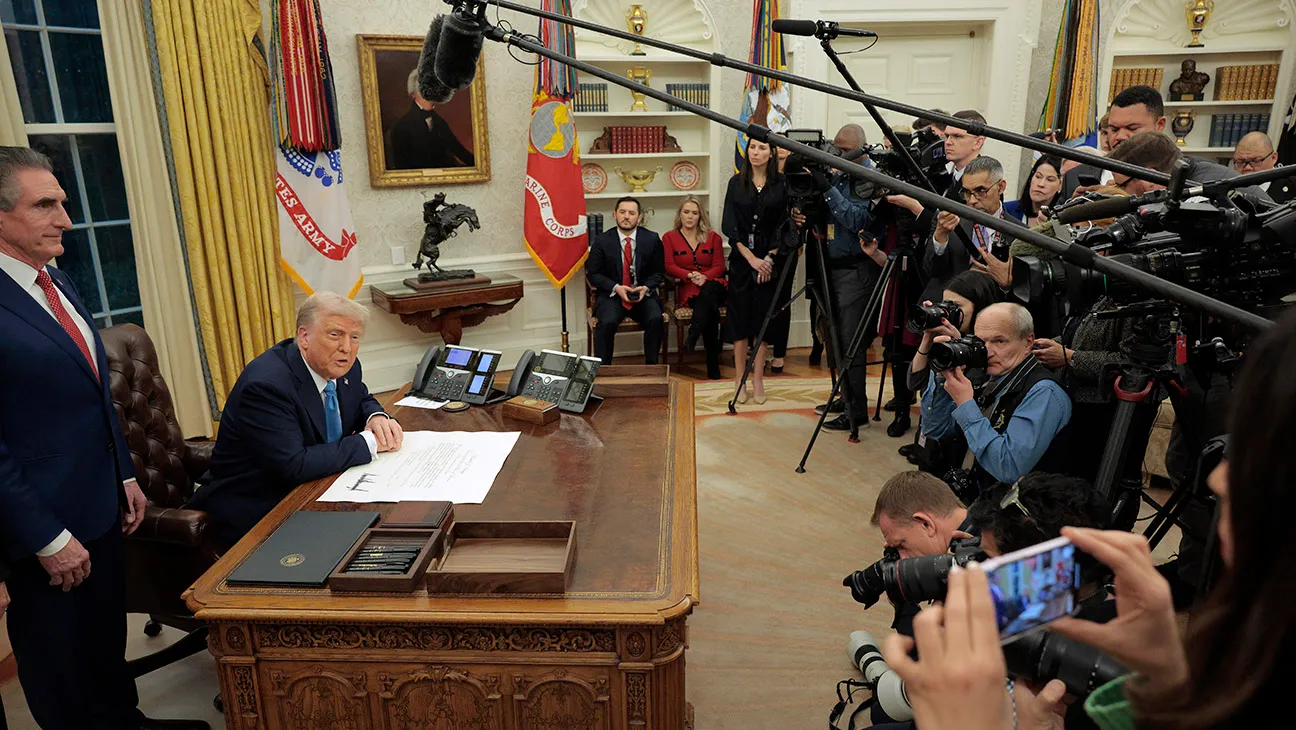President Donald Trump has long been a vocal critic of global trade imbalances, often advocating for aggressive tariffs to protect American industries. In a recent policy proposal, he suggested imposing a 100% tariff on foreign-made movies entering the U.S. market. This bold move, if implemented, would have seismic effects on Hollywood, international filmmakers, streaming platforms, and global trade relations.
This article explores:
- The rationale behind Trump’s proposed tariff
- The potential impact on Hollywood and foreign filmmakers
- How China, Europe, and other major film industries would respond
- The consequences for streaming giants like Netflix and Amazon
- The broader implications for U.S. trade policy and cultural exchange
1. Why a 100% Tariff on Foreign Films? Trump’s Protectionist Argument
Trump’s proposal aligns with his “America First” economic philosophy, which prioritizes domestic industries over foreign competition. His argument for such a steep tariff likely includes:
A. Protecting Hollywood from Foreign Competition
- The U.S. film industry already dominates global box office sales, but foreign films—particularly from China, India, and Europe—have made inroads.
- A 100% tariff would make foreign films twice as expensive to distribute in the U.S., discouraging theaters and streaming platforms from buying them.
B. Retaliation Against China’s Film Quotas
- China strictly limits the number of foreign films (especially American ones) allowed in its theaters each year.
- Trump has repeatedly criticized China’s trade practices, and this tariff could be seen as leverage to force China to open its market further.
C. Boosting U.S. Film Production Jobs
- By making foreign films less competitive, the tariff could incentivize studios to produce more movies domestically, theoretically creating more jobs.
- However, critics argue that Hollywood already relies heavily on international co-productions, and such a tariff could backfire.
2. The Immediate Impact on Hollywood and Foreign Filmmakers
A. Fewer Foreign Films in U.S. Theaters
- Films like India’s “RRR,” South Korea’s “Parasite,” and France’s “The Artist” gained massive U.S. audiences. A 100% tariff could price them out of American cinemas.
- Independent theaters that rely on foreign cinema might struggle to stay open.
B. Streaming Services Would Face Higher Costs
- Netflix, Amazon Prime, and Apple TV+ license thousands of foreign films and shows.
- A 100% tariff could force them to either:
- Absorb the cost (hurting profits)
- Pass it to consumers (raising subscription prices)
- Drop foreign content entirely (limiting diversity)
C. Possible Retaliation Against Hollywood
- If the U.S. slaps a 100% tariff on foreign films, other countries might retaliate with similar measures.
- China could further restrict Hollywood films, cutting off a crucial revenue stream for U.S. studios.
- Europe might impose digital taxes on American streaming platforms.
3. How Major Film Industries Would Respond
A. China: A Trade War Escalation?
- China’s film market is the second-largest in the world, and Hollywood depends on it.
- If China retaliates, studios like Disney (Marvel, Star Wars) and Warner Bros. (DC, Harry Potter) could lose billions.
B. Europe: Subsidies and Counter-Tariffs
- France and Germany heavily subsidize their film industries.
- The EU might increase funding for local films or tax U.S. streaming services more aggressively.
C. India’s Bollywood: A Self-Sufficient Giant
- India already produces more films than Hollywood and relies less on U.S. distribution.
- A U.S. tariff might push Bollywood to focus even more on its domestic and non-U.S. markets.
4. Broader Consequences: Trade, Culture, and Streaming Wars
A. A Blow to Cultural Exchange
- Foreign films offer American audiences exposure to different cultures.
- A 100% tariff could lead to less diversity in U.S. entertainment.
B. Streaming Platforms May Shift Strategies
- Netflix might invest more in U.S.-made foreign-language content (like “Squid Game” but filmed in America).
- Amazon and Apple could lobby aggressively against the tariff.
C. The Risk of a Global Film Trade War
- If multiple countries impose retaliatory tariffs, the global film market could fragment, reducing profits for everyone.
5. Would This Tariff Actually Help Hollywood?
Potential Benefits
- More productions might stay in the U.S., creating jobs.
- Less competition could mean higher profits for domestic studios.
Likely Drawbacks
- Higher costs for distributors and streaming platforms.
- Retaliation could shrink Hollywood’s global earnings.
- Fewer artistic collaborations between U.S. and foreign filmmakers.
Conclusion: A High-Stakes Gamble
Trump’s proposed 100% tariff on foreign films is a radical policy that could reshape the entertainment industry. While it might provide short-term protection for Hollywood, the long-term risks—retaliation, higher costs, and reduced cultural exchange—could outweigh the benefits.
The debate touches on larger issues: Should movies be treated like any other traded good? Or are they a form of cultural diplomacy that should remain tariff-free?
One thing is certain: If this policy moves forward, the world of film and streaming will never be the same.
What Do You Think?
- Would a 100% tariff on foreign films help or hurt Hollywood?
- Should the U.S. prioritize protecting its film industry, or keep global markets open?
- How would streaming services adapt?
Let us know in the comments!



